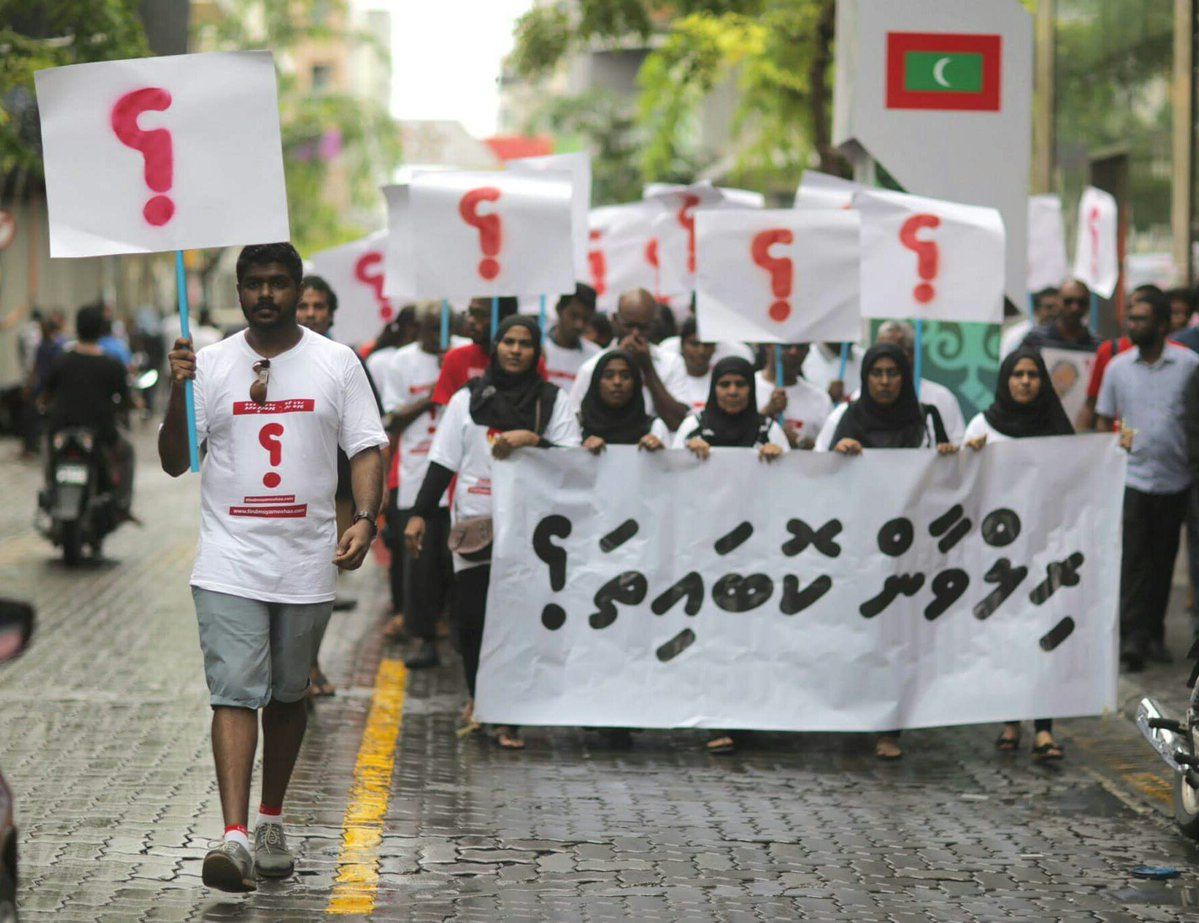A call for a new politics
Justice for Yameen and Rilwan will remain elusive without a radically different politics built on an honest assessment of all parties, including the Maldivian Democratic Party, argues Fathima Musthaq and Azim Zahir.

02 May 2017, 09:00
By Fathima Musthaq and Azim Zahir
The state’s shabby response to blogger Yameen Rasheed’s murder ought to have been the final nail in the coffin of president Abdulla Yameen’s government. And yet, his party marches on, undeterred and unfettered, towards a possible sweep in the local council elections.
The absurdity of the situation we find ourselves in is apparent when we reflect on the following fact: we could have written the above lines three years ago, when Rilwan was abducted at knife-point and disappeared, and four years ago when MP Afrasheem Ali was murdered in his stairwell. Then as now, the government refuses to conduct a proper investigation. Then as now, international bodies are unable to overcome the stronghold of local political forces on these events. And then as now, we as a people remain at a loss as to what happened.
We wait (and some of us actively work) for justice, but justice is not forthcoming.
Become a member
Get full access to our archive and personalise your experience.
Already a member?
Discussion
No comments yet. Be the first to share your thoughts!
No comments yet. Be the first to join the conversation!
Join the Conversation
Sign in to share your thoughts under an alias and take part in the discussion. Independent journalism thrives on open, respectful debate — your voice matters.




